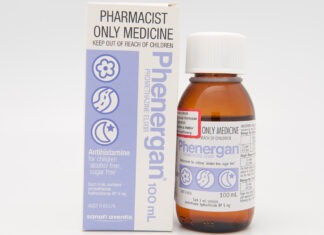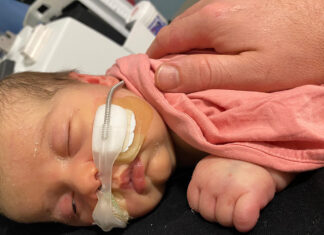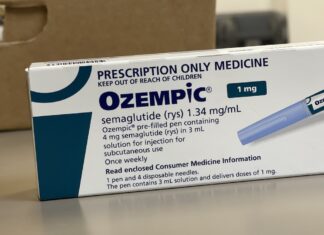

td_module_mega_menu Object
(
[post] => WP_Post Object
(
[ID] => 28254
[post_author] => 3410
[post_date] => 2024-11-18 13:05:58
[post_date_gmt] => 2024-11-18 02:05:58
[post_content] => Mpox cases are surging in Australia. An expert reveals how pharmacists can address the rising spread.
When mpox was first reported in Australia in May 2022, case numbers remained relatively low for the better part of 2 years.
However, in 2024 there has been a significant spike in case numbers in several Australian states and territories, with New South Wales, Victoria and Western Australia all seeing rising locally acquired notifications.
In September, it was reported that mpox cases grew a staggering 570% since July 2024 –with over 724 cases recorded this year. Yet vaccination rates remain low.
Meanwhile, cases of clade Ib – which has a much higher fatality rate than clade IIb strain spreading in Australia – have been detected in numerous countries around the world, most recently the United States. The worldwide spread of the new clade led the World Health Organisation to declare the mpox outbreak a public health emergency of international concern.
At this stage, pharmacists can only administer the mpox vaccine in Victoria and the Northern Territory.
However, pharmacists in all jurisdictions have an essential role in raising awareness of vaccine eligibility and dosing schedule, when to get vaccinated and where to get tested – all of which can help to bring down rising case numbers.
Watch the video below to hear sexual health expert Dr Tom Morley explain how pharmacists can go about this in a culturally safe way.
https://www.youtube.com/watch?v=ZPzbadkq8sM
[post_title] => Curbing the spread as mpox cases skyrocket
[post_excerpt] => Mpox cases are surging both in Australia and around the world. An expert reveals how pharmacists can address the rising spread.
[post_status] => publish
[comment_status] => open
[ping_status] => open
[post_password] =>
[post_name] => curbing-the-spread-as-mpox-cases-skyrocket
[to_ping] =>
[pinged] =>
[post_modified] => 2024-11-18 15:16:33
[post_modified_gmt] => 2024-11-18 04:16:33
[post_content_filtered] =>
[post_parent] => 0
[guid] => https://www.australianpharmacist.com.au/?p=28254
[menu_order] => 0
[post_type] => post
[post_mime_type] =>
[comment_count] => 0
[filter] => raw
)
[title_attribute] => Curbing the spread as mpox cases skyrocket
[title] => Curbing the spread as mpox cases skyrocket
[href] => https://www.australianpharmacist.com.au/curbing-the-spread-as-mpox-cases-skyrocket/
[module_atts:td_module:private] => Array
(
)
[td_review:protected] => Array
(
)
[is_review:protected] =>
[post_thumb_id:protected] => 28257
[authorType] =>
)
td_module_mega_menu Object
(
[post] => WP_Post Object
(
[ID] => 28190
[post_author] => 46
[post_date] => 2024-11-18 09:28:17
[post_date_gmt] => 2024-11-17 22:28:17
[post_content] => Constipation can be an embarrassing topic to discuss with your patients. But irregular bowel movements can not only be uncomfortable, but can lead to other health conditions and severely impact a patient’s quality of life.
[caption id="attachment_28205" align="alignright" width="150"]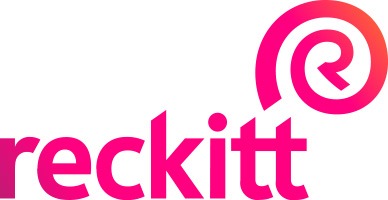 This CPD activity is sponsored by Reckitt. All content is the true, accurate and independent opinion of the speakers and the views expressed are entirely their own.[/caption]
Constipation is a common problem in the community,1 that can significantly impact quality of life if not properly managed.2 It’s also a common reason for primary care visits and referrals to gastroenterologists.3 Unfortunately, many patients are choosing laxatives without the help and advice of a health professional1 so may be choosing products that don’t work effectively5 or choosing to use laxatives when addressing dietary, lifestyle or medicine regimens may be the most appropriate course of action. In this CPD accredited podcast, listen to Priceline Health Services Manager Brett Macfarlane and Senior Clinical Pharmacist – Gastroenterology at the Royal Melbourne Hospital Stephanie Dimovski discuss the problem of constipation and how pharmacists can assist patients in managing this condition. They will address the importance of identifying whether insufficient fibre and fluid intake may be contributing and whether making dietary and exercise recommendations is enough to restore normal bowel habits.
This CPD activity is sponsored by Reckitt. All content is the true, accurate and independent opinion of the speakers and the views expressed are entirely their own.[/caption]
Constipation is a common problem in the community,1 that can significantly impact quality of life if not properly managed.2 It’s also a common reason for primary care visits and referrals to gastroenterologists.3 Unfortunately, many patients are choosing laxatives without the help and advice of a health professional1 so may be choosing products that don’t work effectively5 or choosing to use laxatives when addressing dietary, lifestyle or medicine regimens may be the most appropriate course of action. In this CPD accredited podcast, listen to Priceline Health Services Manager Brett Macfarlane and Senior Clinical Pharmacist – Gastroenterology at the Royal Melbourne Hospital Stephanie Dimovski discuss the problem of constipation and how pharmacists can assist patients in managing this condition. They will address the importance of identifying whether insufficient fibre and fluid intake may be contributing and whether making dietary and exercise recommendations is enough to restore normal bowel habits.
After reading this article, pharmacists should be able to:
|
td_module_mega_menu Object
(
[post] => WP_Post Object
(
[ID] => 28164
[post_author] => 3410
[post_date] => 2024-11-13 12:50:58
[post_date_gmt] => 2024-11-13 01:50:58
[post_content] => The Therapeutic Goods Administration (TGA) has worked with Phenergan manufacturer Sanofi to develop a new contraindication for the medicine in children under 6.
The decision to restrict use of the medicine in this age cohort – commonly used to treat allergies, travel sickness and nausea – is based on a thorough evaluation of new scientific evidence that the risks outweigh the benefits, a spokesperson for Sanofi told Australian Pharmacist.
‘Following recent evaluations made by Sanofi Consumer Healthcare Pty Ltd, including a benefit-risk assessment, the research has shown a causal association between promethazine and safety concerns,’ said this spokesperson.
The sponsor-initiated update was prompted by advice from the TGA Advisory Committee on Medicines (ACM) – first-generation oral sedating antihistamines – do not use in children, said a spokesperson from the TGA.
‘Further review by the sponsor of cumulative safety data in children 2 to 5 years of age demonstrated sufficient evidence of a causal association between promethazine and psychiatric and central nervous system adverse events in this age group,’ the TGA spokesperson told AP.
The contraindication comes after Medsafe, the New Zealand Medicines and Medical Devices Safety Authority, moved to contraindicate the use of the medicine in children under 6 due to the potential for fatal respiratory depression, psychiatric and central nervous system (CNS) events.
AP understands that the contraindication will affect other products. A spokesperson for AFT said a variation has been submitted to update the product information and label on Allersoothe Elixir with a change to the age indication from children 2 years and older to children 6 years and older. This submission is pending approval.
Will the packaging change?
Not immediately.
New labels for promethazine-containing products will be rolled out in 2025 due to production and logistics lead times, said the Sanofi spokesperson.
‘No immediate action is required regarding current stock. There is no need to set aside existing medications, as this communication does not constitute a recall,’ said the spokesperson. ‘Similarly, the revised labels do not create any changes in the ordering process.
The product information for Phenergan has been updated and is available here.
What should pharmacists do if they get a Phenergan script for an 18 month old infant?
The use of promethazine in children under 6 years of age is now both contraindicated and off label, said Peter Guthrey MPS, PSA Senior Pharmacist – strategic policy.
‘This means that if you choose to dispense, both the prescriber and dispenser carry the full indemnity risk, and you need to get the patient to provide informed consent,’ he said.
Should a parent present with a script for promethazine for use in a child under 6 years of age, pharmacists should contact the prescriber to discuss the risks and benefits, noting that it's contraindicated.
Is there any situation where it would be appropriate to dispense Phenergan to a young child?
It would need to be a pretty compelling case, where the benefit to a child outweighed the risk of respiratory depression, psychiatric or CNS events , said Mr Guthrey.
‘Given it’s a documented contraindication, it'd be pretty hard to demonstrate the medicine is ‘‘safe and therapeutically appropriate’’,’ he said.
‘It is going to be difficult to find a situation where supply is clinically justified and pharmacists have met their obligations to patient safety.’
What about prescribing Phenergan as a Schedule 3 medicine?
If a parent requests promethazine as a Schedule 3 medicine for someone under the age of 6 years, generally alternate products or advice for treatment should be provided following a discussion.
‘While a pharmacist prescribing promethazine as a Pharmacist Only Medicine is lawful for children aged 2-5 years, it is still contraindicated,’ said Mr Guthrey. ‘There would be very few, if any, situations where prescribing the medicine where contraindicated would be warranted.’
What about phenylephrine?
There are some combination phenylephrine products indicated for children under 6 years of age for nasal congestion. However, there is plenty of evidence showing that oral phenylephrine products are ineffective as a nasal decongestant.
In fact, the United States Food and Drug Administration (FDA) recently announced it will move to ban oral phenylephrine products because they simply don't work.
‘Based on our review of available data, and consistent with the advice of the advisory committee, we are taking this next step in the process to propose removing oral phenylephrine because it is not effective as a nasal decongestant,’ said Patrizia Cavazzoni, M.D., director of the FDA’s Center for Drug Evaluation and Research .
While a spokesperson for the TGA told Australian Pharmacist back in July that there are ‘no plans’ to review the effectiveness of oral phenylephrine, it will continue to monitor the outcomes of the FDA review.
What advice should pharmacists provide?
For children with allergies, non-sedating histamines are first line.
The best thing parents can do when a child under 6 years of age has cough or cold symptoms is to wait it out, with a review by a medical practitioner when appropriate.
‘It's about reassurance to parents that the cough in itself isn't harmful, and that kids don’t always need medicines for a cold – they need time and supportive therapy,’ said Mr Guthrey.
It’s important that pharmacists give parents confidence that they're doing the right thing by not treating the cough, and providing symptomatic relief for fever and chills, and ensuring they are appropriately counselled on when review by a medical practitioner may be appropriate.
For more information, refer to the Australian Pharmaceutical Formulary and Handbook treatment guidelines on:
[post_title] => Do not supply Phenergan to children under 6, manufacturer warns
[post_excerpt] => The TGA has worked with Phenergan manufacturer Sanofi to develop a new contraindication for the medicine in children under 6.
[post_status] => publish
[comment_status] => open
[ping_status] => open
[post_password] =>
[post_name] => do-not-supply-phenergan-to-children-under-6-manufacturer-warns
[to_ping] =>
[pinged] =>
[post_modified] => 2024-11-13 16:15:31
[post_modified_gmt] => 2024-11-13 05:15:31
[post_content_filtered] =>
[post_parent] => 0
[guid] => https://www.australianpharmacist.com.au/?p=28164
[menu_order] => 0
[post_type] => post
[post_mime_type] =>
[comment_count] => 0
[filter] => raw
)
[title_attribute] => Do not supply Phenergan to children under 6, manufacturer warns
[title] => Do not supply Phenergan to children under 6, manufacturer warns
[href] => https://www.australianpharmacist.com.au/do-not-supply-phenergan-to-children-under-6-manufacturer-warns/
[module_atts:td_module:private] => Array
(
)
[td_review:protected] => Array
(
)
[is_review:protected] =>
[post_thumb_id:protected] => 28167
[authorType] =>
)
td_module_mega_menu Object
(
[post] => WP_Post Object
(
[ID] => 28142
[post_author] => 3410
[post_date] => 2024-11-11 15:55:46
[post_date_gmt] => 2024-11-11 04:55:46
[post_content] => With cases of Respiratory syncytial virus (RSV) spiking this year, the federal government announced yesterday (10 November) that free vaccination would be offered to eligible pregnant people and babies.
Before the 2025 winter season, the RSV vaccine will be available under the National Immunisation Program (NIP) for all people in the third trimester of pregnancy via the Australian Infant RSV Immunisation Program.
Which RSV vaccines will pharmacists administer?
The RSV immunisation program will offer two Therapeutic Goods Administration approved protections against severe RSV.
Pharmacists can administer the maternal vaccine, Abrysvo, to pregnant women between 28-36 weeks of gestation.
Maternal vaccination provides early protection for newborn children by reducing the risk of severe RSV disease in infants under 6 months of age by around 70%, a spokesperson from the Department of Health and Aged Care told Australian Pharmacist.
‘This is [through] passive protection by transplacental transfer of RSV-specific antibodies from the mother to the foetus during pregnancy.’
How popular will it be?
Federal Minister for Health and Aged Care Mark Butler said the RSV vaccine rollout has been modelled on the whooping cough vaccine in pregnant women, which is administered at around the same time and has an uptake rate of around 80%.
‘Maternal vaccination provides early protection for newborn children by reducing the risk of severe RSV disease in infants under 6 months of age by around 70%.'
The Department of Health and Aged Care
‘So we have good confidence that there will be a significant uptake of this maternal vaccine by pregnant Australian women,’ he added.
What is covered for pharmacists under the NIP?
According to the Department of Health and Aged Care, both the cost of the maternal RSV vaccine (Abrysvo) and the vaccine administration fee will be covered under the NIP and The National Immunisation Program Vaccinations in Pharmacy (NIPVIP) Program.
Abrysvo NIP vaccine stock will also be available to community pharmacists, said the spokesperson.
What about protection for neonates?
Access has also widened for more babies to receive a protection against RSV soon after birth, particularly those whose mother did not opt to have the vaccine during pregnancy.
Beyfortus (nirsevimab), an antibody therapy for the prevention of RSV-related lower respiratory tract disease, will be available in hospitals, immunisation clinics and general practices for infants before or during their first RSV season. Children up to 24 months of age who remain vulnerable to severe RSV disease throughout their second RSV season can also access the vaccine.
‘Beyfortus is a monoclonal antibody treatment which is administered to babies by injection,’ said Minister Butler. ‘[It can be received] immediately after birth … if their mother has not been vaccinated against RSV.’
Why did the government decide to take action against RSV?
Australia recorded the highest ever number of RSV cases this year, with 165,910 reported notifications.
Most cases were recorded in the 0–4 age cohort, among whom RSV can be fatal, and is the leading cause of hospitalisation for Australian children under five years of age.
The Australian Immunisation Foundation estimates that around 12,000 Australian babies aged 12 months or younger are admitted to hospital with RSV annually. Around 25% of these children will require intensive care.
The inclusion of an RSV vaccine in the NIP is an important step to protect newborn children and infants from severe RSV infection, said the spokesperson.
‘The highest rate of RSV-related hospitalisations is in infants during their first few months of life,’ said the spokesperson.
‘Infants with medical risk factors, such as being born very [premature], under 32 weeks gestational age, have an increased risk of severe disease.
‘Up to 80% of infants who are hospitalised due to RSV are otherwise healthy children with no predisposing conditions.’
What’s the expected impact?
The Immunisation Foundation of Australia has estimated that the nationwide availability of new RSV immunisations will help to keep 10,000 infants out of hospital with related bronchiolitis or pneumonia each year.
‘The immunisations being funded in Australia protect babies against severe RSV and have been shown to slash hospitalisation rates by up to 90 per cent,’ said Catherine Hughes AM, Founder and Director of the Immunisation Foundation of Australia.
Western Australia was the first state to implement an infant RSV immunisation program with Beyfortus. More than 23,000 infants received RSV protection this year, resulting in up to 84% fewer hospitalisations in immunised newborns compared to those who were not RSV protected. In Queensland, where a statewide infant RSV immunisation program commenced in April 2024, similar results were observed.
‘The exceptional results in Western Australia and Queensland contrast sharply with other parts of Australia where hospitals were overwhelmed by babies struggling to breathe due to severe RSV,’ she said.
Will older patients be able to receive the RSV vaccine under the NIP?
No. Well at least, not yet.
Vaccines can only be listed on the NIP after a positive recommendation from the Pharmaceutical Benefits Advisory Committee’s (PBAC) as required by the National Health Act 1953, said the spokesperson.
‘Several vaccine sponsors have made submissions in relation to RSV vaccines for older populations to the PBAC to consider for NIP listing,’ said the spokesperson.
‘The outcomes of these meetings will inform future government considerations regarding the potential listing of RSV vaccines on the NIP for older Australians.’
While a positive PBAC recommendation is an essential requirement in the NIP-listing process, other steps need to be completed before a vaccine can be given final approval for NIP listing, said the spokesperson.
‘These include negotiations with the relevant pharmaceutical company, finalisation of conditions for listing, quality and availability checks and final consideration by the government,’ said the spokesperson. ‘These considerations and decisions of government cannot be preempted.’
[post_title] => Government-funded RSV vaccines to protect infants from severe disease
[post_excerpt] => With cases of RSV spiking in 2024, the federal government announced free vaccination would be offered to eligible pregnant people and babies.
[post_status] => publish
[comment_status] => open
[ping_status] => open
[post_password] =>
[post_name] => government-funded-rsv-vaccines-to-protect-infants-from-severe-disease
[to_ping] =>
[pinged] =>
[post_modified] => 2024-11-13 13:26:32
[post_modified_gmt] => 2024-11-13 02:26:32
[post_content_filtered] =>
[post_parent] => 0
[guid] => https://www.australianpharmacist.com.au/?p=28142
[menu_order] => 0
[post_type] => post
[post_mime_type] =>
[comment_count] => 0
[filter] => raw
)
[title_attribute] => Government-funded RSV vaccines to protect infants from severe disease
[title] => Government-funded RSV vaccines to protect infants from severe disease
[href] => https://www.australianpharmacist.com.au/government-funded-rsv-vaccines-to-protect-infants-from-severe-disease/
[module_atts:td_module:private] => Array
(
)
[td_review:protected] => Array
(
)
[is_review:protected] =>
[post_thumb_id:protected] => 28146
[authorType] =>
)
td_module_mega_menu Object
(
[post] => WP_Post Object
(
[ID] => 28134
[post_author] => 9164
[post_date] => 2024-11-11 12:48:48
[post_date_gmt] => 2024-11-11 01:48:48
[post_content] => Pharmacists and migrant community leaders, Sobia Hashmi MPS and Irfan Hashmi MPS, are the 2025 Local Heroes for South Australia, receiving their award on Saturday night in a ceremony in Adelaide.
The local heroes category of these Australia Day awards recognise role models who encourage others to be active in their own communities and become agents of positive change for a more diverse and inclusive Australia.
Over 20 years, Sobia and husband Irfan have transformed healthcare in remote and rural communities in South Australia. They’ve established six pharmacies in areas where there were previously none – which forced people to travel long distances for life-saving medicines and primary health care.
Sobia (48) and Irfan (51) are committed to serving their diverse communities. They employ staff who collectively speak 21 languages, allowing them to reach vulnerable populations and provide culturally sensitive healthcare. In 2020, they partnered with government to provide 24 free influenza vaccine clinics in outreach settings, providing 1200 vaccines to vulnerable people in South Australia.
Reflecting on the awards, Irfan and Sobia told Australian Pharmacist that the award was a celebration of the collective efforts of everyone who has been with them along the way, including their family, friends, colleagues, and the broader community.
‘To every individual who believed in us, who encouraged us to reach higher, and who shared in our vision of uplifting others, thank you. Your unwavering support drives us to do more, reach further, and connect deeper with those around us,’ they said.
Sobia and Irfan also reflected on the importance of community.
‘Together, we are stronger. Together, we make a difference. And together, let’s continue to build a healthier, more inclusive South Australia for all. This is just the beginning, and we are excited for the journey ahead,’ they said.
‘We are truly honoured and humbled to be named the 2025 Australian of the Year Award – Local Hero in SA recipients. This recognition strengthens our commitment to making a positive impact as pharmacists and community leaders, and it inspires us to continue serving the vibrant multicultural community that we call home.’
The couple have mentored countless intern pharmacists from overseas, coordinating multilingual education and outreach initiatives to help pharmacists enter the much-needed workforce in regional Australia. They host a free weekly webinar series, which has assisted 4,000 overseas pharmacists in passing their registration exams in the last 12 months alone.
Irfan previously was recognised as PSA’s 2009 South Australian Pharmacist of the Year.
[post_title] => Two pharmacists win state Australian of the Year 2025 award
[post_excerpt] => Sobia Hashmi MPS and Irfan Hashmi MPS will attend the Australian of the Year awards as finalists for the national local heroes title.
[post_status] => publish
[comment_status] => open
[ping_status] => open
[post_password] =>
[post_name] => two-pharmacists-win-state-australian-of-the-year-2025-award
[to_ping] =>
[pinged] =>
[post_modified] => 2024-11-13 13:26:46
[post_modified_gmt] => 2024-11-13 02:26:46
[post_content_filtered] =>
[post_parent] => 0
[guid] => https://www.australianpharmacist.com.au/?p=28134
[menu_order] => 0
[post_type] => post
[post_mime_type] =>
[comment_count] => 0
[filter] => raw
)
[title_attribute] => Two pharmacists win state Australian of the Year 2025 award
[title] => Two pharmacists win state Australian of the Year 2025 award
[href] => https://www.australianpharmacist.com.au/two-pharmacists-win-state-australian-of-the-year-2025-award/
[module_atts:td_module:private] => Array
(
)
[td_review:protected] => Array
(
)
[is_review:protected] =>
[post_thumb_id:protected] => 28140
[authorType] =>
)
td_module_mega_menu Object
(
[post] => WP_Post Object
(
[ID] => 28254
[post_author] => 3410
[post_date] => 2024-11-18 13:05:58
[post_date_gmt] => 2024-11-18 02:05:58
[post_content] => Mpox cases are surging in Australia. An expert reveals how pharmacists can address the rising spread.
When mpox was first reported in Australia in May 2022, case numbers remained relatively low for the better part of 2 years.
However, in 2024 there has been a significant spike in case numbers in several Australian states and territories, with New South Wales, Victoria and Western Australia all seeing rising locally acquired notifications.
In September, it was reported that mpox cases grew a staggering 570% since July 2024 –with over 724 cases recorded this year. Yet vaccination rates remain low.
Meanwhile, cases of clade Ib – which has a much higher fatality rate than clade IIb strain spreading in Australia – have been detected in numerous countries around the world, most recently the United States. The worldwide spread of the new clade led the World Health Organisation to declare the mpox outbreak a public health emergency of international concern.
At this stage, pharmacists can only administer the mpox vaccine in Victoria and the Northern Territory.
However, pharmacists in all jurisdictions have an essential role in raising awareness of vaccine eligibility and dosing schedule, when to get vaccinated and where to get tested – all of which can help to bring down rising case numbers.
Watch the video below to hear sexual health expert Dr Tom Morley explain how pharmacists can go about this in a culturally safe way.
https://www.youtube.com/watch?v=ZPzbadkq8sM
[post_title] => Curbing the spread as mpox cases skyrocket
[post_excerpt] => Mpox cases are surging both in Australia and around the world. An expert reveals how pharmacists can address the rising spread.
[post_status] => publish
[comment_status] => open
[ping_status] => open
[post_password] =>
[post_name] => curbing-the-spread-as-mpox-cases-skyrocket
[to_ping] =>
[pinged] =>
[post_modified] => 2024-11-18 15:16:33
[post_modified_gmt] => 2024-11-18 04:16:33
[post_content_filtered] =>
[post_parent] => 0
[guid] => https://www.australianpharmacist.com.au/?p=28254
[menu_order] => 0
[post_type] => post
[post_mime_type] =>
[comment_count] => 0
[filter] => raw
)
[title_attribute] => Curbing the spread as mpox cases skyrocket
[title] => Curbing the spread as mpox cases skyrocket
[href] => https://www.australianpharmacist.com.au/curbing-the-spread-as-mpox-cases-skyrocket/
[module_atts:td_module:private] => Array
(
)
[td_review:protected] => Array
(
)
[is_review:protected] =>
[post_thumb_id:protected] => 28257
[authorType] =>
)
td_module_mega_menu Object
(
[post] => WP_Post Object
(
[ID] => 28190
[post_author] => 46
[post_date] => 2024-11-18 09:28:17
[post_date_gmt] => 2024-11-17 22:28:17
[post_content] => Constipation can be an embarrassing topic to discuss with your patients. But irregular bowel movements can not only be uncomfortable, but can lead to other health conditions and severely impact a patient’s quality of life.
[caption id="attachment_28205" align="alignright" width="150"] This CPD activity is sponsored by Reckitt. All content is the true, accurate and independent opinion of the speakers and the views expressed are entirely their own.[/caption]
Constipation is a common problem in the community,1 that can significantly impact quality of life if not properly managed.2 It’s also a common reason for primary care visits and referrals to gastroenterologists.3 Unfortunately, many patients are choosing laxatives without the help and advice of a health professional1 so may be choosing products that don’t work effectively5 or choosing to use laxatives when addressing dietary, lifestyle or medicine regimens may be the most appropriate course of action. In this CPD accredited podcast, listen to Priceline Health Services Manager Brett Macfarlane and Senior Clinical Pharmacist – Gastroenterology at the Royal Melbourne Hospital Stephanie Dimovski discuss the problem of constipation and how pharmacists can assist patients in managing this condition. They will address the importance of identifying whether insufficient fibre and fluid intake may be contributing and whether making dietary and exercise recommendations is enough to restore normal bowel habits.
This CPD activity is sponsored by Reckitt. All content is the true, accurate and independent opinion of the speakers and the views expressed are entirely their own.[/caption]
Constipation is a common problem in the community,1 that can significantly impact quality of life if not properly managed.2 It’s also a common reason for primary care visits and referrals to gastroenterologists.3 Unfortunately, many patients are choosing laxatives without the help and advice of a health professional1 so may be choosing products that don’t work effectively5 or choosing to use laxatives when addressing dietary, lifestyle or medicine regimens may be the most appropriate course of action. In this CPD accredited podcast, listen to Priceline Health Services Manager Brett Macfarlane and Senior Clinical Pharmacist – Gastroenterology at the Royal Melbourne Hospital Stephanie Dimovski discuss the problem of constipation and how pharmacists can assist patients in managing this condition. They will address the importance of identifying whether insufficient fibre and fluid intake may be contributing and whether making dietary and exercise recommendations is enough to restore normal bowel habits.
After reading this article, pharmacists should be able to:
|
td_module_mega_menu Object
(
[post] => WP_Post Object
(
[ID] => 28164
[post_author] => 3410
[post_date] => 2024-11-13 12:50:58
[post_date_gmt] => 2024-11-13 01:50:58
[post_content] => The Therapeutic Goods Administration (TGA) has worked with Phenergan manufacturer Sanofi to develop a new contraindication for the medicine in children under 6.
The decision to restrict use of the medicine in this age cohort – commonly used to treat allergies, travel sickness and nausea – is based on a thorough evaluation of new scientific evidence that the risks outweigh the benefits, a spokesperson for Sanofi told Australian Pharmacist.
‘Following recent evaluations made by Sanofi Consumer Healthcare Pty Ltd, including a benefit-risk assessment, the research has shown a causal association between promethazine and safety concerns,’ said this spokesperson.
The sponsor-initiated update was prompted by advice from the TGA Advisory Committee on Medicines (ACM) – first-generation oral sedating antihistamines – do not use in children, said a spokesperson from the TGA.
‘Further review by the sponsor of cumulative safety data in children 2 to 5 years of age demonstrated sufficient evidence of a causal association between promethazine and psychiatric and central nervous system adverse events in this age group,’ the TGA spokesperson told AP.
The contraindication comes after Medsafe, the New Zealand Medicines and Medical Devices Safety Authority, moved to contraindicate the use of the medicine in children under 6 due to the potential for fatal respiratory depression, psychiatric and central nervous system (CNS) events.
AP understands that the contraindication will affect other products. A spokesperson for AFT said a variation has been submitted to update the product information and label on Allersoothe Elixir with a change to the age indication from children 2 years and older to children 6 years and older. This submission is pending approval.
Will the packaging change?
Not immediately.
New labels for promethazine-containing products will be rolled out in 2025 due to production and logistics lead times, said the Sanofi spokesperson.
‘No immediate action is required regarding current stock. There is no need to set aside existing medications, as this communication does not constitute a recall,’ said the spokesperson. ‘Similarly, the revised labels do not create any changes in the ordering process.
The product information for Phenergan has been updated and is available here.
What should pharmacists do if they get a Phenergan script for an 18 month old infant?
The use of promethazine in children under 6 years of age is now both contraindicated and off label, said Peter Guthrey MPS, PSA Senior Pharmacist – strategic policy.
‘This means that if you choose to dispense, both the prescriber and dispenser carry the full indemnity risk, and you need to get the patient to provide informed consent,’ he said.
Should a parent present with a script for promethazine for use in a child under 6 years of age, pharmacists should contact the prescriber to discuss the risks and benefits, noting that it's contraindicated.
Is there any situation where it would be appropriate to dispense Phenergan to a young child?
It would need to be a pretty compelling case, where the benefit to a child outweighed the risk of respiratory depression, psychiatric or CNS events , said Mr Guthrey.
‘Given it’s a documented contraindication, it'd be pretty hard to demonstrate the medicine is ‘‘safe and therapeutically appropriate’’,’ he said.
‘It is going to be difficult to find a situation where supply is clinically justified and pharmacists have met their obligations to patient safety.’
What about prescribing Phenergan as a Schedule 3 medicine?
If a parent requests promethazine as a Schedule 3 medicine for someone under the age of 6 years, generally alternate products or advice for treatment should be provided following a discussion.
‘While a pharmacist prescribing promethazine as a Pharmacist Only Medicine is lawful for children aged 2-5 years, it is still contraindicated,’ said Mr Guthrey. ‘There would be very few, if any, situations where prescribing the medicine where contraindicated would be warranted.’
What about phenylephrine?
There are some combination phenylephrine products indicated for children under 6 years of age for nasal congestion. However, there is plenty of evidence showing that oral phenylephrine products are ineffective as a nasal decongestant.
In fact, the United States Food and Drug Administration (FDA) recently announced it will move to ban oral phenylephrine products because they simply don't work.
‘Based on our review of available data, and consistent with the advice of the advisory committee, we are taking this next step in the process to propose removing oral phenylephrine because it is not effective as a nasal decongestant,’ said Patrizia Cavazzoni, M.D., director of the FDA’s Center for Drug Evaluation and Research .
While a spokesperson for the TGA told Australian Pharmacist back in July that there are ‘no plans’ to review the effectiveness of oral phenylephrine, it will continue to monitor the outcomes of the FDA review.
What advice should pharmacists provide?
For children with allergies, non-sedating histamines are first line.
The best thing parents can do when a child under 6 years of age has cough or cold symptoms is to wait it out, with a review by a medical practitioner when appropriate.
‘It's about reassurance to parents that the cough in itself isn't harmful, and that kids don’t always need medicines for a cold – they need time and supportive therapy,’ said Mr Guthrey.
It’s important that pharmacists give parents confidence that they're doing the right thing by not treating the cough, and providing symptomatic relief for fever and chills, and ensuring they are appropriately counselled on when review by a medical practitioner may be appropriate.
For more information, refer to the Australian Pharmaceutical Formulary and Handbook treatment guidelines on:
[post_title] => Do not supply Phenergan to children under 6, manufacturer warns
[post_excerpt] => The TGA has worked with Phenergan manufacturer Sanofi to develop a new contraindication for the medicine in children under 6.
[post_status] => publish
[comment_status] => open
[ping_status] => open
[post_password] =>
[post_name] => do-not-supply-phenergan-to-children-under-6-manufacturer-warns
[to_ping] =>
[pinged] =>
[post_modified] => 2024-11-13 16:15:31
[post_modified_gmt] => 2024-11-13 05:15:31
[post_content_filtered] =>
[post_parent] => 0
[guid] => https://www.australianpharmacist.com.au/?p=28164
[menu_order] => 0
[post_type] => post
[post_mime_type] =>
[comment_count] => 0
[filter] => raw
)
[title_attribute] => Do not supply Phenergan to children under 6, manufacturer warns
[title] => Do not supply Phenergan to children under 6, manufacturer warns
[href] => https://www.australianpharmacist.com.au/do-not-supply-phenergan-to-children-under-6-manufacturer-warns/
[module_atts:td_module:private] => Array
(
)
[td_review:protected] => Array
(
)
[is_review:protected] =>
[post_thumb_id:protected] => 28167
[authorType] =>
)
td_module_mega_menu Object
(
[post] => WP_Post Object
(
[ID] => 28142
[post_author] => 3410
[post_date] => 2024-11-11 15:55:46
[post_date_gmt] => 2024-11-11 04:55:46
[post_content] => With cases of Respiratory syncytial virus (RSV) spiking this year, the federal government announced yesterday (10 November) that free vaccination would be offered to eligible pregnant people and babies.
Before the 2025 winter season, the RSV vaccine will be available under the National Immunisation Program (NIP) for all people in the third trimester of pregnancy via the Australian Infant RSV Immunisation Program.
Which RSV vaccines will pharmacists administer?
The RSV immunisation program will offer two Therapeutic Goods Administration approved protections against severe RSV.
Pharmacists can administer the maternal vaccine, Abrysvo, to pregnant women between 28-36 weeks of gestation.
Maternal vaccination provides early protection for newborn children by reducing the risk of severe RSV disease in infants under 6 months of age by around 70%, a spokesperson from the Department of Health and Aged Care told Australian Pharmacist.
‘This is [through] passive protection by transplacental transfer of RSV-specific antibodies from the mother to the foetus during pregnancy.’
How popular will it be?
Federal Minister for Health and Aged Care Mark Butler said the RSV vaccine rollout has been modelled on the whooping cough vaccine in pregnant women, which is administered at around the same time and has an uptake rate of around 80%.
‘Maternal vaccination provides early protection for newborn children by reducing the risk of severe RSV disease in infants under 6 months of age by around 70%.'
The Department of Health and Aged Care
‘So we have good confidence that there will be a significant uptake of this maternal vaccine by pregnant Australian women,’ he added.
What is covered for pharmacists under the NIP?
According to the Department of Health and Aged Care, both the cost of the maternal RSV vaccine (Abrysvo) and the vaccine administration fee will be covered under the NIP and The National Immunisation Program Vaccinations in Pharmacy (NIPVIP) Program.
Abrysvo NIP vaccine stock will also be available to community pharmacists, said the spokesperson.
What about protection for neonates?
Access has also widened for more babies to receive a protection against RSV soon after birth, particularly those whose mother did not opt to have the vaccine during pregnancy.
Beyfortus (nirsevimab), an antibody therapy for the prevention of RSV-related lower respiratory tract disease, will be available in hospitals, immunisation clinics and general practices for infants before or during their first RSV season. Children up to 24 months of age who remain vulnerable to severe RSV disease throughout their second RSV season can also access the vaccine.
‘Beyfortus is a monoclonal antibody treatment which is administered to babies by injection,’ said Minister Butler. ‘[It can be received] immediately after birth … if their mother has not been vaccinated against RSV.’
Why did the government decide to take action against RSV?
Australia recorded the highest ever number of RSV cases this year, with 165,910 reported notifications.
Most cases were recorded in the 0–4 age cohort, among whom RSV can be fatal, and is the leading cause of hospitalisation for Australian children under five years of age.
The Australian Immunisation Foundation estimates that around 12,000 Australian babies aged 12 months or younger are admitted to hospital with RSV annually. Around 25% of these children will require intensive care.
The inclusion of an RSV vaccine in the NIP is an important step to protect newborn children and infants from severe RSV infection, said the spokesperson.
‘The highest rate of RSV-related hospitalisations is in infants during their first few months of life,’ said the spokesperson.
‘Infants with medical risk factors, such as being born very [premature], under 32 weeks gestational age, have an increased risk of severe disease.
‘Up to 80% of infants who are hospitalised due to RSV are otherwise healthy children with no predisposing conditions.’
What’s the expected impact?
The Immunisation Foundation of Australia has estimated that the nationwide availability of new RSV immunisations will help to keep 10,000 infants out of hospital with related bronchiolitis or pneumonia each year.
‘The immunisations being funded in Australia protect babies against severe RSV and have been shown to slash hospitalisation rates by up to 90 per cent,’ said Catherine Hughes AM, Founder and Director of the Immunisation Foundation of Australia.
Western Australia was the first state to implement an infant RSV immunisation program with Beyfortus. More than 23,000 infants received RSV protection this year, resulting in up to 84% fewer hospitalisations in immunised newborns compared to those who were not RSV protected. In Queensland, where a statewide infant RSV immunisation program commenced in April 2024, similar results were observed.
‘The exceptional results in Western Australia and Queensland contrast sharply with other parts of Australia where hospitals were overwhelmed by babies struggling to breathe due to severe RSV,’ she said.
Will older patients be able to receive the RSV vaccine under the NIP?
No. Well at least, not yet.
Vaccines can only be listed on the NIP after a positive recommendation from the Pharmaceutical Benefits Advisory Committee’s (PBAC) as required by the National Health Act 1953, said the spokesperson.
‘Several vaccine sponsors have made submissions in relation to RSV vaccines for older populations to the PBAC to consider for NIP listing,’ said the spokesperson.
‘The outcomes of these meetings will inform future government considerations regarding the potential listing of RSV vaccines on the NIP for older Australians.’
While a positive PBAC recommendation is an essential requirement in the NIP-listing process, other steps need to be completed before a vaccine can be given final approval for NIP listing, said the spokesperson.
‘These include negotiations with the relevant pharmaceutical company, finalisation of conditions for listing, quality and availability checks and final consideration by the government,’ said the spokesperson. ‘These considerations and decisions of government cannot be preempted.’
[post_title] => Government-funded RSV vaccines to protect infants from severe disease
[post_excerpt] => With cases of RSV spiking in 2024, the federal government announced free vaccination would be offered to eligible pregnant people and babies.
[post_status] => publish
[comment_status] => open
[ping_status] => open
[post_password] =>
[post_name] => government-funded-rsv-vaccines-to-protect-infants-from-severe-disease
[to_ping] =>
[pinged] =>
[post_modified] => 2024-11-13 13:26:32
[post_modified_gmt] => 2024-11-13 02:26:32
[post_content_filtered] =>
[post_parent] => 0
[guid] => https://www.australianpharmacist.com.au/?p=28142
[menu_order] => 0
[post_type] => post
[post_mime_type] =>
[comment_count] => 0
[filter] => raw
)
[title_attribute] => Government-funded RSV vaccines to protect infants from severe disease
[title] => Government-funded RSV vaccines to protect infants from severe disease
[href] => https://www.australianpharmacist.com.au/government-funded-rsv-vaccines-to-protect-infants-from-severe-disease/
[module_atts:td_module:private] => Array
(
)
[td_review:protected] => Array
(
)
[is_review:protected] =>
[post_thumb_id:protected] => 28146
[authorType] =>
)
td_module_mega_menu Object
(
[post] => WP_Post Object
(
[ID] => 28134
[post_author] => 9164
[post_date] => 2024-11-11 12:48:48
[post_date_gmt] => 2024-11-11 01:48:48
[post_content] => Pharmacists and migrant community leaders, Sobia Hashmi MPS and Irfan Hashmi MPS, are the 2025 Local Heroes for South Australia, receiving their award on Saturday night in a ceremony in Adelaide.
The local heroes category of these Australia Day awards recognise role models who encourage others to be active in their own communities and become agents of positive change for a more diverse and inclusive Australia.
Over 20 years, Sobia and husband Irfan have transformed healthcare in remote and rural communities in South Australia. They’ve established six pharmacies in areas where there were previously none – which forced people to travel long distances for life-saving medicines and primary health care.
Sobia (48) and Irfan (51) are committed to serving their diverse communities. They employ staff who collectively speak 21 languages, allowing them to reach vulnerable populations and provide culturally sensitive healthcare. In 2020, they partnered with government to provide 24 free influenza vaccine clinics in outreach settings, providing 1200 vaccines to vulnerable people in South Australia.
Reflecting on the awards, Irfan and Sobia told Australian Pharmacist that the award was a celebration of the collective efforts of everyone who has been with them along the way, including their family, friends, colleagues, and the broader community.
‘To every individual who believed in us, who encouraged us to reach higher, and who shared in our vision of uplifting others, thank you. Your unwavering support drives us to do more, reach further, and connect deeper with those around us,’ they said.
Sobia and Irfan also reflected on the importance of community.
‘Together, we are stronger. Together, we make a difference. And together, let’s continue to build a healthier, more inclusive South Australia for all. This is just the beginning, and we are excited for the journey ahead,’ they said.
‘We are truly honoured and humbled to be named the 2025 Australian of the Year Award – Local Hero in SA recipients. This recognition strengthens our commitment to making a positive impact as pharmacists and community leaders, and it inspires us to continue serving the vibrant multicultural community that we call home.’
The couple have mentored countless intern pharmacists from overseas, coordinating multilingual education and outreach initiatives to help pharmacists enter the much-needed workforce in regional Australia. They host a free weekly webinar series, which has assisted 4,000 overseas pharmacists in passing their registration exams in the last 12 months alone.
Irfan previously was recognised as PSA’s 2009 South Australian Pharmacist of the Year.
[post_title] => Two pharmacists win state Australian of the Year 2025 award
[post_excerpt] => Sobia Hashmi MPS and Irfan Hashmi MPS will attend the Australian of the Year awards as finalists for the national local heroes title.
[post_status] => publish
[comment_status] => open
[ping_status] => open
[post_password] =>
[post_name] => two-pharmacists-win-state-australian-of-the-year-2025-award
[to_ping] =>
[pinged] =>
[post_modified] => 2024-11-13 13:26:46
[post_modified_gmt] => 2024-11-13 02:26:46
[post_content_filtered] =>
[post_parent] => 0
[guid] => https://www.australianpharmacist.com.au/?p=28134
[menu_order] => 0
[post_type] => post
[post_mime_type] =>
[comment_count] => 0
[filter] => raw
)
[title_attribute] => Two pharmacists win state Australian of the Year 2025 award
[title] => Two pharmacists win state Australian of the Year 2025 award
[href] => https://www.australianpharmacist.com.au/two-pharmacists-win-state-australian-of-the-year-2025-award/
[module_atts:td_module:private] => Array
(
)
[td_review:protected] => Array
(
)
[is_review:protected] =>
[post_thumb_id:protected] => 28140
[authorType] =>
)
td_module_mega_menu Object
(
[post] => WP_Post Object
(
[ID] => 28254
[post_author] => 3410
[post_date] => 2024-11-18 13:05:58
[post_date_gmt] => 2024-11-18 02:05:58
[post_content] => Mpox cases are surging in Australia. An expert reveals how pharmacists can address the rising spread.
When mpox was first reported in Australia in May 2022, case numbers remained relatively low for the better part of 2 years.
However, in 2024 there has been a significant spike in case numbers in several Australian states and territories, with New South Wales, Victoria and Western Australia all seeing rising locally acquired notifications.
In September, it was reported that mpox cases grew a staggering 570% since July 2024 –with over 724 cases recorded this year. Yet vaccination rates remain low.
Meanwhile, cases of clade Ib – which has a much higher fatality rate than clade IIb strain spreading in Australia – have been detected in numerous countries around the world, most recently the United States. The worldwide spread of the new clade led the World Health Organisation to declare the mpox outbreak a public health emergency of international concern.
At this stage, pharmacists can only administer the mpox vaccine in Victoria and the Northern Territory.
However, pharmacists in all jurisdictions have an essential role in raising awareness of vaccine eligibility and dosing schedule, when to get vaccinated and where to get tested – all of which can help to bring down rising case numbers.
Watch the video below to hear sexual health expert Dr Tom Morley explain how pharmacists can go about this in a culturally safe way.
https://www.youtube.com/watch?v=ZPzbadkq8sM
[post_title] => Curbing the spread as mpox cases skyrocket
[post_excerpt] => Mpox cases are surging both in Australia and around the world. An expert reveals how pharmacists can address the rising spread.
[post_status] => publish
[comment_status] => open
[ping_status] => open
[post_password] =>
[post_name] => curbing-the-spread-as-mpox-cases-skyrocket
[to_ping] =>
[pinged] =>
[post_modified] => 2024-11-18 15:16:33
[post_modified_gmt] => 2024-11-18 04:16:33
[post_content_filtered] =>
[post_parent] => 0
[guid] => https://www.australianpharmacist.com.au/?p=28254
[menu_order] => 0
[post_type] => post
[post_mime_type] =>
[comment_count] => 0
[filter] => raw
)
[title_attribute] => Curbing the spread as mpox cases skyrocket
[title] => Curbing the spread as mpox cases skyrocket
[href] => https://www.australianpharmacist.com.au/curbing-the-spread-as-mpox-cases-skyrocket/
[module_atts:td_module:private] => Array
(
)
[td_review:protected] => Array
(
)
[is_review:protected] =>
[post_thumb_id:protected] => 28257
[authorType] =>
)
td_module_mega_menu Object
(
[post] => WP_Post Object
(
[ID] => 28190
[post_author] => 46
[post_date] => 2024-11-18 09:28:17
[post_date_gmt] => 2024-11-17 22:28:17
[post_content] => Constipation can be an embarrassing topic to discuss with your patients. But irregular bowel movements can not only be uncomfortable, but can lead to other health conditions and severely impact a patient’s quality of life.
[caption id="attachment_28205" align="alignright" width="150"] This CPD activity is sponsored by Reckitt. All content is the true, accurate and independent opinion of the speakers and the views expressed are entirely their own.[/caption]
Constipation is a common problem in the community,1 that can significantly impact quality of life if not properly managed.2 It’s also a common reason for primary care visits and referrals to gastroenterologists.3 Unfortunately, many patients are choosing laxatives without the help and advice of a health professional1 so may be choosing products that don’t work effectively5 or choosing to use laxatives when addressing dietary, lifestyle or medicine regimens may be the most appropriate course of action. In this CPD accredited podcast, listen to Priceline Health Services Manager Brett Macfarlane and Senior Clinical Pharmacist – Gastroenterology at the Royal Melbourne Hospital Stephanie Dimovski discuss the problem of constipation and how pharmacists can assist patients in managing this condition. They will address the importance of identifying whether insufficient fibre and fluid intake may be contributing and whether making dietary and exercise recommendations is enough to restore normal bowel habits.
This CPD activity is sponsored by Reckitt. All content is the true, accurate and independent opinion of the speakers and the views expressed are entirely their own.[/caption]
Constipation is a common problem in the community,1 that can significantly impact quality of life if not properly managed.2 It’s also a common reason for primary care visits and referrals to gastroenterologists.3 Unfortunately, many patients are choosing laxatives without the help and advice of a health professional1 so may be choosing products that don’t work effectively5 or choosing to use laxatives when addressing dietary, lifestyle or medicine regimens may be the most appropriate course of action. In this CPD accredited podcast, listen to Priceline Health Services Manager Brett Macfarlane and Senior Clinical Pharmacist – Gastroenterology at the Royal Melbourne Hospital Stephanie Dimovski discuss the problem of constipation and how pharmacists can assist patients in managing this condition. They will address the importance of identifying whether insufficient fibre and fluid intake may be contributing and whether making dietary and exercise recommendations is enough to restore normal bowel habits.
After reading this article, pharmacists should be able to:
|
td_module_mega_menu Object
(
[post] => WP_Post Object
(
[ID] => 28164
[post_author] => 3410
[post_date] => 2024-11-13 12:50:58
[post_date_gmt] => 2024-11-13 01:50:58
[post_content] => The Therapeutic Goods Administration (TGA) has worked with Phenergan manufacturer Sanofi to develop a new contraindication for the medicine in children under 6.
The decision to restrict use of the medicine in this age cohort – commonly used to treat allergies, travel sickness and nausea – is based on a thorough evaluation of new scientific evidence that the risks outweigh the benefits, a spokesperson for Sanofi told Australian Pharmacist.
‘Following recent evaluations made by Sanofi Consumer Healthcare Pty Ltd, including a benefit-risk assessment, the research has shown a causal association between promethazine and safety concerns,’ said this spokesperson.
The sponsor-initiated update was prompted by advice from the TGA Advisory Committee on Medicines (ACM) – first-generation oral sedating antihistamines – do not use in children, said a spokesperson from the TGA.
‘Further review by the sponsor of cumulative safety data in children 2 to 5 years of age demonstrated sufficient evidence of a causal association between promethazine and psychiatric and central nervous system adverse events in this age group,’ the TGA spokesperson told AP.
The contraindication comes after Medsafe, the New Zealand Medicines and Medical Devices Safety Authority, moved to contraindicate the use of the medicine in children under 6 due to the potential for fatal respiratory depression, psychiatric and central nervous system (CNS) events.
AP understands that the contraindication will affect other products. A spokesperson for AFT said a variation has been submitted to update the product information and label on Allersoothe Elixir with a change to the age indication from children 2 years and older to children 6 years and older. This submission is pending approval.
Will the packaging change?
Not immediately.
New labels for promethazine-containing products will be rolled out in 2025 due to production and logistics lead times, said the Sanofi spokesperson.
‘No immediate action is required regarding current stock. There is no need to set aside existing medications, as this communication does not constitute a recall,’ said the spokesperson. ‘Similarly, the revised labels do not create any changes in the ordering process.
The product information for Phenergan has been updated and is available here.
What should pharmacists do if they get a Phenergan script for an 18 month old infant?
The use of promethazine in children under 6 years of age is now both contraindicated and off label, said Peter Guthrey MPS, PSA Senior Pharmacist – strategic policy.
‘This means that if you choose to dispense, both the prescriber and dispenser carry the full indemnity risk, and you need to get the patient to provide informed consent,’ he said.
Should a parent present with a script for promethazine for use in a child under 6 years of age, pharmacists should contact the prescriber to discuss the risks and benefits, noting that it's contraindicated.
Is there any situation where it would be appropriate to dispense Phenergan to a young child?
It would need to be a pretty compelling case, where the benefit to a child outweighed the risk of respiratory depression, psychiatric or CNS events , said Mr Guthrey.
‘Given it’s a documented contraindication, it'd be pretty hard to demonstrate the medicine is ‘‘safe and therapeutically appropriate’’,’ he said.
‘It is going to be difficult to find a situation where supply is clinically justified and pharmacists have met their obligations to patient safety.’
What about prescribing Phenergan as a Schedule 3 medicine?
If a parent requests promethazine as a Schedule 3 medicine for someone under the age of 6 years, generally alternate products or advice for treatment should be provided following a discussion.
‘While a pharmacist prescribing promethazine as a Pharmacist Only Medicine is lawful for children aged 2-5 years, it is still contraindicated,’ said Mr Guthrey. ‘There would be very few, if any, situations where prescribing the medicine where contraindicated would be warranted.’
What about phenylephrine?
There are some combination phenylephrine products indicated for children under 6 years of age for nasal congestion. However, there is plenty of evidence showing that oral phenylephrine products are ineffective as a nasal decongestant.
In fact, the United States Food and Drug Administration (FDA) recently announced it will move to ban oral phenylephrine products because they simply don't work.
‘Based on our review of available data, and consistent with the advice of the advisory committee, we are taking this next step in the process to propose removing oral phenylephrine because it is not effective as a nasal decongestant,’ said Patrizia Cavazzoni, M.D., director of the FDA’s Center for Drug Evaluation and Research .
While a spokesperson for the TGA told Australian Pharmacist back in July that there are ‘no plans’ to review the effectiveness of oral phenylephrine, it will continue to monitor the outcomes of the FDA review.
What advice should pharmacists provide?
For children with allergies, non-sedating histamines are first line.
The best thing parents can do when a child under 6 years of age has cough or cold symptoms is to wait it out, with a review by a medical practitioner when appropriate.
‘It's about reassurance to parents that the cough in itself isn't harmful, and that kids don’t always need medicines for a cold – they need time and supportive therapy,’ said Mr Guthrey.
It’s important that pharmacists give parents confidence that they're doing the right thing by not treating the cough, and providing symptomatic relief for fever and chills, and ensuring they are appropriately counselled on when review by a medical practitioner may be appropriate.
For more information, refer to the Australian Pharmaceutical Formulary and Handbook treatment guidelines on:
[post_title] => Do not supply Phenergan to children under 6, manufacturer warns
[post_excerpt] => The TGA has worked with Phenergan manufacturer Sanofi to develop a new contraindication for the medicine in children under 6.
[post_status] => publish
[comment_status] => open
[ping_status] => open
[post_password] =>
[post_name] => do-not-supply-phenergan-to-children-under-6-manufacturer-warns
[to_ping] =>
[pinged] =>
[post_modified] => 2024-11-13 16:15:31
[post_modified_gmt] => 2024-11-13 05:15:31
[post_content_filtered] =>
[post_parent] => 0
[guid] => https://www.australianpharmacist.com.au/?p=28164
[menu_order] => 0
[post_type] => post
[post_mime_type] =>
[comment_count] => 0
[filter] => raw
)
[title_attribute] => Do not supply Phenergan to children under 6, manufacturer warns
[title] => Do not supply Phenergan to children under 6, manufacturer warns
[href] => https://www.australianpharmacist.com.au/do-not-supply-phenergan-to-children-under-6-manufacturer-warns/
[module_atts:td_module:private] => Array
(
)
[td_review:protected] => Array
(
)
[is_review:protected] =>
[post_thumb_id:protected] => 28167
[authorType] =>
)
td_module_mega_menu Object
(
[post] => WP_Post Object
(
[ID] => 28142
[post_author] => 3410
[post_date] => 2024-11-11 15:55:46
[post_date_gmt] => 2024-11-11 04:55:46
[post_content] => With cases of Respiratory syncytial virus (RSV) spiking this year, the federal government announced yesterday (10 November) that free vaccination would be offered to eligible pregnant people and babies.
Before the 2025 winter season, the RSV vaccine will be available under the National Immunisation Program (NIP) for all people in the third trimester of pregnancy via the Australian Infant RSV Immunisation Program.
Which RSV vaccines will pharmacists administer?
The RSV immunisation program will offer two Therapeutic Goods Administration approved protections against severe RSV.
Pharmacists can administer the maternal vaccine, Abrysvo, to pregnant women between 28-36 weeks of gestation.
Maternal vaccination provides early protection for newborn children by reducing the risk of severe RSV disease in infants under 6 months of age by around 70%, a spokesperson from the Department of Health and Aged Care told Australian Pharmacist.
‘This is [through] passive protection by transplacental transfer of RSV-specific antibodies from the mother to the foetus during pregnancy.’
How popular will it be?
Federal Minister for Health and Aged Care Mark Butler said the RSV vaccine rollout has been modelled on the whooping cough vaccine in pregnant women, which is administered at around the same time and has an uptake rate of around 80%.
‘Maternal vaccination provides early protection for newborn children by reducing the risk of severe RSV disease in infants under 6 months of age by around 70%.'
The Department of Health and Aged Care
‘So we have good confidence that there will be a significant uptake of this maternal vaccine by pregnant Australian women,’ he added.
What is covered for pharmacists under the NIP?
According to the Department of Health and Aged Care, both the cost of the maternal RSV vaccine (Abrysvo) and the vaccine administration fee will be covered under the NIP and The National Immunisation Program Vaccinations in Pharmacy (NIPVIP) Program.
Abrysvo NIP vaccine stock will also be available to community pharmacists, said the spokesperson.
What about protection for neonates?
Access has also widened for more babies to receive a protection against RSV soon after birth, particularly those whose mother did not opt to have the vaccine during pregnancy.
Beyfortus (nirsevimab), an antibody therapy for the prevention of RSV-related lower respiratory tract disease, will be available in hospitals, immunisation clinics and general practices for infants before or during their first RSV season. Children up to 24 months of age who remain vulnerable to severe RSV disease throughout their second RSV season can also access the vaccine.
‘Beyfortus is a monoclonal antibody treatment which is administered to babies by injection,’ said Minister Butler. ‘[It can be received] immediately after birth … if their mother has not been vaccinated against RSV.’
Why did the government decide to take action against RSV?
Australia recorded the highest ever number of RSV cases this year, with 165,910 reported notifications.
Most cases were recorded in the 0–4 age cohort, among whom RSV can be fatal, and is the leading cause of hospitalisation for Australian children under five years of age.
The Australian Immunisation Foundation estimates that around 12,000 Australian babies aged 12 months or younger are admitted to hospital with RSV annually. Around 25% of these children will require intensive care.
The inclusion of an RSV vaccine in the NIP is an important step to protect newborn children and infants from severe RSV infection, said the spokesperson.
‘The highest rate of RSV-related hospitalisations is in infants during their first few months of life,’ said the spokesperson.
‘Infants with medical risk factors, such as being born very [premature], under 32 weeks gestational age, have an increased risk of severe disease.
‘Up to 80% of infants who are hospitalised due to RSV are otherwise healthy children with no predisposing conditions.’
What’s the expected impact?
The Immunisation Foundation of Australia has estimated that the nationwide availability of new RSV immunisations will help to keep 10,000 infants out of hospital with related bronchiolitis or pneumonia each year.
‘The immunisations being funded in Australia protect babies against severe RSV and have been shown to slash hospitalisation rates by up to 90 per cent,’ said Catherine Hughes AM, Founder and Director of the Immunisation Foundation of Australia.
Western Australia was the first state to implement an infant RSV immunisation program with Beyfortus. More than 23,000 infants received RSV protection this year, resulting in up to 84% fewer hospitalisations in immunised newborns compared to those who were not RSV protected. In Queensland, where a statewide infant RSV immunisation program commenced in April 2024, similar results were observed.
‘The exceptional results in Western Australia and Queensland contrast sharply with other parts of Australia where hospitals were overwhelmed by babies struggling to breathe due to severe RSV,’ she said.
Will older patients be able to receive the RSV vaccine under the NIP?
No. Well at least, not yet.
Vaccines can only be listed on the NIP after a positive recommendation from the Pharmaceutical Benefits Advisory Committee’s (PBAC) as required by the National Health Act 1953, said the spokesperson.
‘Several vaccine sponsors have made submissions in relation to RSV vaccines for older populations to the PBAC to consider for NIP listing,’ said the spokesperson.
‘The outcomes of these meetings will inform future government considerations regarding the potential listing of RSV vaccines on the NIP for older Australians.’
While a positive PBAC recommendation is an essential requirement in the NIP-listing process, other steps need to be completed before a vaccine can be given final approval for NIP listing, said the spokesperson.
‘These include negotiations with the relevant pharmaceutical company, finalisation of conditions for listing, quality and availability checks and final consideration by the government,’ said the spokesperson. ‘These considerations and decisions of government cannot be preempted.’
[post_title] => Government-funded RSV vaccines to protect infants from severe disease
[post_excerpt] => With cases of RSV spiking in 2024, the federal government announced free vaccination would be offered to eligible pregnant people and babies.
[post_status] => publish
[comment_status] => open
[ping_status] => open
[post_password] =>
[post_name] => government-funded-rsv-vaccines-to-protect-infants-from-severe-disease
[to_ping] =>
[pinged] =>
[post_modified] => 2024-11-13 13:26:32
[post_modified_gmt] => 2024-11-13 02:26:32
[post_content_filtered] =>
[post_parent] => 0
[guid] => https://www.australianpharmacist.com.au/?p=28142
[menu_order] => 0
[post_type] => post
[post_mime_type] =>
[comment_count] => 0
[filter] => raw
)
[title_attribute] => Government-funded RSV vaccines to protect infants from severe disease
[title] => Government-funded RSV vaccines to protect infants from severe disease
[href] => https://www.australianpharmacist.com.au/government-funded-rsv-vaccines-to-protect-infants-from-severe-disease/
[module_atts:td_module:private] => Array
(
)
[td_review:protected] => Array
(
)
[is_review:protected] =>
[post_thumb_id:protected] => 28146
[authorType] =>
)
td_module_mega_menu Object
(
[post] => WP_Post Object
(
[ID] => 28134
[post_author] => 9164
[post_date] => 2024-11-11 12:48:48
[post_date_gmt] => 2024-11-11 01:48:48
[post_content] => Pharmacists and migrant community leaders, Sobia Hashmi MPS and Irfan Hashmi MPS, are the 2025 Local Heroes for South Australia, receiving their award on Saturday night in a ceremony in Adelaide.
The local heroes category of these Australia Day awards recognise role models who encourage others to be active in their own communities and become agents of positive change for a more diverse and inclusive Australia.
Over 20 years, Sobia and husband Irfan have transformed healthcare in remote and rural communities in South Australia. They’ve established six pharmacies in areas where there were previously none – which forced people to travel long distances for life-saving medicines and primary health care.
Sobia (48) and Irfan (51) are committed to serving their diverse communities. They employ staff who collectively speak 21 languages, allowing them to reach vulnerable populations and provide culturally sensitive healthcare. In 2020, they partnered with government to provide 24 free influenza vaccine clinics in outreach settings, providing 1200 vaccines to vulnerable people in South Australia.
Reflecting on the awards, Irfan and Sobia told Australian Pharmacist that the award was a celebration of the collective efforts of everyone who has been with them along the way, including their family, friends, colleagues, and the broader community.
‘To every individual who believed in us, who encouraged us to reach higher, and who shared in our vision of uplifting others, thank you. Your unwavering support drives us to do more, reach further, and connect deeper with those around us,’ they said.
Sobia and Irfan also reflected on the importance of community.
‘Together, we are stronger. Together, we make a difference. And together, let’s continue to build a healthier, more inclusive South Australia for all. This is just the beginning, and we are excited for the journey ahead,’ they said.
‘We are truly honoured and humbled to be named the 2025 Australian of the Year Award – Local Hero in SA recipients. This recognition strengthens our commitment to making a positive impact as pharmacists and community leaders, and it inspires us to continue serving the vibrant multicultural community that we call home.’
The couple have mentored countless intern pharmacists from overseas, coordinating multilingual education and outreach initiatives to help pharmacists enter the much-needed workforce in regional Australia. They host a free weekly webinar series, which has assisted 4,000 overseas pharmacists in passing their registration exams in the last 12 months alone.
Irfan previously was recognised as PSA’s 2009 South Australian Pharmacist of the Year.
[post_title] => Two pharmacists win state Australian of the Year 2025 award
[post_excerpt] => Sobia Hashmi MPS and Irfan Hashmi MPS will attend the Australian of the Year awards as finalists for the national local heroes title.
[post_status] => publish
[comment_status] => open
[ping_status] => open
[post_password] =>
[post_name] => two-pharmacists-win-state-australian-of-the-year-2025-award
[to_ping] =>
[pinged] =>
[post_modified] => 2024-11-13 13:26:46
[post_modified_gmt] => 2024-11-13 02:26:46
[post_content_filtered] =>
[post_parent] => 0
[guid] => https://www.australianpharmacist.com.au/?p=28134
[menu_order] => 0
[post_type] => post
[post_mime_type] =>
[comment_count] => 0
[filter] => raw
)
[title_attribute] => Two pharmacists win state Australian of the Year 2025 award
[title] => Two pharmacists win state Australian of the Year 2025 award
[href] => https://www.australianpharmacist.com.au/two-pharmacists-win-state-australian-of-the-year-2025-award/
[module_atts:td_module:private] => Array
(
)
[td_review:protected] => Array
(
)
[is_review:protected] =>
[post_thumb_id:protected] => 28140
[authorType] =>
)
td_module_mega_menu Object
(
[post] => WP_Post Object
(
[ID] => 28254
[post_author] => 3410
[post_date] => 2024-11-18 13:05:58
[post_date_gmt] => 2024-11-18 02:05:58
[post_content] => Mpox cases are surging in Australia. An expert reveals how pharmacists can address the rising spread.
When mpox was first reported in Australia in May 2022, case numbers remained relatively low for the better part of 2 years.
However, in 2024 there has been a significant spike in case numbers in several Australian states and territories, with New South Wales, Victoria and Western Australia all seeing rising locally acquired notifications.
In September, it was reported that mpox cases grew a staggering 570% since July 2024 –with over 724 cases recorded this year. Yet vaccination rates remain low.
Meanwhile, cases of clade Ib – which has a much higher fatality rate than clade IIb strain spreading in Australia – have been detected in numerous countries around the world, most recently the United States. The worldwide spread of the new clade led the World Health Organisation to declare the mpox outbreak a public health emergency of international concern.
At this stage, pharmacists can only administer the mpox vaccine in Victoria and the Northern Territory.
However, pharmacists in all jurisdictions have an essential role in raising awareness of vaccine eligibility and dosing schedule, when to get vaccinated and where to get tested – all of which can help to bring down rising case numbers.
Watch the video below to hear sexual health expert Dr Tom Morley explain how pharmacists can go about this in a culturally safe way.
https://www.youtube.com/watch?v=ZPzbadkq8sM
[post_title] => Curbing the spread as mpox cases skyrocket
[post_excerpt] => Mpox cases are surging both in Australia and around the world. An expert reveals how pharmacists can address the rising spread.
[post_status] => publish
[comment_status] => open
[ping_status] => open
[post_password] =>
[post_name] => curbing-the-spread-as-mpox-cases-skyrocket
[to_ping] =>
[pinged] =>
[post_modified] => 2024-11-18 15:16:33
[post_modified_gmt] => 2024-11-18 04:16:33
[post_content_filtered] =>
[post_parent] => 0
[guid] => https://www.australianpharmacist.com.au/?p=28254
[menu_order] => 0
[post_type] => post
[post_mime_type] =>
[comment_count] => 0
[filter] => raw
)
[title_attribute] => Curbing the spread as mpox cases skyrocket
[title] => Curbing the spread as mpox cases skyrocket
[href] => https://www.australianpharmacist.com.au/curbing-the-spread-as-mpox-cases-skyrocket/
[module_atts:td_module:private] => Array
(
)
[td_review:protected] => Array
(
)
[is_review:protected] =>
[post_thumb_id:protected] => 28257
[authorType] =>
)
td_module_mega_menu Object
(
[post] => WP_Post Object
(
[ID] => 28190
[post_author] => 46
[post_date] => 2024-11-18 09:28:17
[post_date_gmt] => 2024-11-17 22:28:17
[post_content] => Constipation can be an embarrassing topic to discuss with your patients. But irregular bowel movements can not only be uncomfortable, but can lead to other health conditions and severely impact a patient’s quality of life.
[caption id="attachment_28205" align="alignright" width="150"] This CPD activity is sponsored by Reckitt. All content is the true, accurate and independent opinion of the speakers and the views expressed are entirely their own.[/caption]
Constipation is a common problem in the community,1 that can significantly impact quality of life if not properly managed.2 It’s also a common reason for primary care visits and referrals to gastroenterologists.3 Unfortunately, many patients are choosing laxatives without the help and advice of a health professional1 so may be choosing products that don’t work effectively5 or choosing to use laxatives when addressing dietary, lifestyle or medicine regimens may be the most appropriate course of action. In this CPD accredited podcast, listen to Priceline Health Services Manager Brett Macfarlane and Senior Clinical Pharmacist – Gastroenterology at the Royal Melbourne Hospital Stephanie Dimovski discuss the problem of constipation and how pharmacists can assist patients in managing this condition. They will address the importance of identifying whether insufficient fibre and fluid intake may be contributing and whether making dietary and exercise recommendations is enough to restore normal bowel habits.
This CPD activity is sponsored by Reckitt. All content is the true, accurate and independent opinion of the speakers and the views expressed are entirely their own.[/caption]
Constipation is a common problem in the community,1 that can significantly impact quality of life if not properly managed.2 It’s also a common reason for primary care visits and referrals to gastroenterologists.3 Unfortunately, many patients are choosing laxatives without the help and advice of a health professional1 so may be choosing products that don’t work effectively5 or choosing to use laxatives when addressing dietary, lifestyle or medicine regimens may be the most appropriate course of action. In this CPD accredited podcast, listen to Priceline Health Services Manager Brett Macfarlane and Senior Clinical Pharmacist – Gastroenterology at the Royal Melbourne Hospital Stephanie Dimovski discuss the problem of constipation and how pharmacists can assist patients in managing this condition. They will address the importance of identifying whether insufficient fibre and fluid intake may be contributing and whether making dietary and exercise recommendations is enough to restore normal bowel habits.
After reading this article, pharmacists should be able to:
|
td_module_mega_menu Object
(
[post] => WP_Post Object
(
[ID] => 28164
[post_author] => 3410
[post_date] => 2024-11-13 12:50:58
[post_date_gmt] => 2024-11-13 01:50:58
[post_content] => The Therapeutic Goods Administration (TGA) has worked with Phenergan manufacturer Sanofi to develop a new contraindication for the medicine in children under 6.
The decision to restrict use of the medicine in this age cohort – commonly used to treat allergies, travel sickness and nausea – is based on a thorough evaluation of new scientific evidence that the risks outweigh the benefits, a spokesperson for Sanofi told Australian Pharmacist.
‘Following recent evaluations made by Sanofi Consumer Healthcare Pty Ltd, including a benefit-risk assessment, the research has shown a causal association between promethazine and safety concerns,’ said this spokesperson.
The sponsor-initiated update was prompted by advice from the TGA Advisory Committee on Medicines (ACM) – first-generation oral sedating antihistamines – do not use in children, said a spokesperson from the TGA.
‘Further review by the sponsor of cumulative safety data in children 2 to 5 years of age demonstrated sufficient evidence of a causal association between promethazine and psychiatric and central nervous system adverse events in this age group,’ the TGA spokesperson told AP.
The contraindication comes after Medsafe, the New Zealand Medicines and Medical Devices Safety Authority, moved to contraindicate the use of the medicine in children under 6 due to the potential for fatal respiratory depression, psychiatric and central nervous system (CNS) events.
AP understands that the contraindication will affect other products. A spokesperson for AFT said a variation has been submitted to update the product information and label on Allersoothe Elixir with a change to the age indication from children 2 years and older to children 6 years and older. This submission is pending approval.
Will the packaging change?
Not immediately.
New labels for promethazine-containing products will be rolled out in 2025 due to production and logistics lead times, said the Sanofi spokesperson.
‘No immediate action is required regarding current stock. There is no need to set aside existing medications, as this communication does not constitute a recall,’ said the spokesperson. ‘Similarly, the revised labels do not create any changes in the ordering process.
The product information for Phenergan has been updated and is available here.
What should pharmacists do if they get a Phenergan script for an 18 month old infant?
The use of promethazine in children under 6 years of age is now both contraindicated and off label, said Peter Guthrey MPS, PSA Senior Pharmacist – strategic policy.
‘This means that if you choose to dispense, both the prescriber and dispenser carry the full indemnity risk, and you need to get the patient to provide informed consent,’ he said.
Should a parent present with a script for promethazine for use in a child under 6 years of age, pharmacists should contact the prescriber to discuss the risks and benefits, noting that it's contraindicated.
Is there any situation where it would be appropriate to dispense Phenergan to a young child?
It would need to be a pretty compelling case, where the benefit to a child outweighed the risk of respiratory depression, psychiatric or CNS events , said Mr Guthrey.
‘Given it’s a documented contraindication, it'd be pretty hard to demonstrate the medicine is ‘‘safe and therapeutically appropriate’’,’ he said.
‘It is going to be difficult to find a situation where supply is clinically justified and pharmacists have met their obligations to patient safety.’
What about prescribing Phenergan as a Schedule 3 medicine?
If a parent requests promethazine as a Schedule 3 medicine for someone under the age of 6 years, generally alternate products or advice for treatment should be provided following a discussion.
‘While a pharmacist prescribing promethazine as a Pharmacist Only Medicine is lawful for children aged 2-5 years, it is still contraindicated,’ said Mr Guthrey. ‘There would be very few, if any, situations where prescribing the medicine where contraindicated would be warranted.’
What about phenylephrine?
There are some combination phenylephrine products indicated for children under 6 years of age for nasal congestion. However, there is plenty of evidence showing that oral phenylephrine products are ineffective as a nasal decongestant.
In fact, the United States Food and Drug Administration (FDA) recently announced it will move to ban oral phenylephrine products because they simply don't work.
‘Based on our review of available data, and consistent with the advice of the advisory committee, we are taking this next step in the process to propose removing oral phenylephrine because it is not effective as a nasal decongestant,’ said Patrizia Cavazzoni, M.D., director of the FDA’s Center for Drug Evaluation and Research .
While a spokesperson for the TGA told Australian Pharmacist back in July that there are ‘no plans’ to review the effectiveness of oral phenylephrine, it will continue to monitor the outcomes of the FDA review.
What advice should pharmacists provide?
For children with allergies, non-sedating histamines are first line.
The best thing parents can do when a child under 6 years of age has cough or cold symptoms is to wait it out, with a review by a medical practitioner when appropriate.
‘It's about reassurance to parents that the cough in itself isn't harmful, and that kids don’t always need medicines for a cold – they need time and supportive therapy,’ said Mr Guthrey.
It’s important that pharmacists give parents confidence that they're doing the right thing by not treating the cough, and providing symptomatic relief for fever and chills, and ensuring they are appropriately counselled on when review by a medical practitioner may be appropriate.
For more information, refer to the Australian Pharmaceutical Formulary and Handbook treatment guidelines on:
[post_title] => Do not supply Phenergan to children under 6, manufacturer warns
[post_excerpt] => The TGA has worked with Phenergan manufacturer Sanofi to develop a new contraindication for the medicine in children under 6.
[post_status] => publish
[comment_status] => open
[ping_status] => open
[post_password] =>
[post_name] => do-not-supply-phenergan-to-children-under-6-manufacturer-warns
[to_ping] =>
[pinged] =>
[post_modified] => 2024-11-13 16:15:31
[post_modified_gmt] => 2024-11-13 05:15:31
[post_content_filtered] =>
[post_parent] => 0
[guid] => https://www.australianpharmacist.com.au/?p=28164
[menu_order] => 0
[post_type] => post
[post_mime_type] =>
[comment_count] => 0
[filter] => raw
)
[title_attribute] => Do not supply Phenergan to children under 6, manufacturer warns
[title] => Do not supply Phenergan to children under 6, manufacturer warns
[href] => https://www.australianpharmacist.com.au/do-not-supply-phenergan-to-children-under-6-manufacturer-warns/
[module_atts:td_module:private] => Array
(
)
[td_review:protected] => Array
(
)
[is_review:protected] =>
[post_thumb_id:protected] => 28167
[authorType] =>
)
td_module_mega_menu Object
(
[post] => WP_Post Object
(
[ID] => 28142
[post_author] => 3410
[post_date] => 2024-11-11 15:55:46
[post_date_gmt] => 2024-11-11 04:55:46
[post_content] => With cases of Respiratory syncytial virus (RSV) spiking this year, the federal government announced yesterday (10 November) that free vaccination would be offered to eligible pregnant people and babies.
Before the 2025 winter season, the RSV vaccine will be available under the National Immunisation Program (NIP) for all people in the third trimester of pregnancy via the Australian Infant RSV Immunisation Program.
Which RSV vaccines will pharmacists administer?
The RSV immunisation program will offer two Therapeutic Goods Administration approved protections against severe RSV.
Pharmacists can administer the maternal vaccine, Abrysvo, to pregnant women between 28-36 weeks of gestation.
Maternal vaccination provides early protection for newborn children by reducing the risk of severe RSV disease in infants under 6 months of age by around 70%, a spokesperson from the Department of Health and Aged Care told Australian Pharmacist.
‘This is [through] passive protection by transplacental transfer of RSV-specific antibodies from the mother to the foetus during pregnancy.’
How popular will it be?
Federal Minister for Health and Aged Care Mark Butler said the RSV vaccine rollout has been modelled on the whooping cough vaccine in pregnant women, which is administered at around the same time and has an uptake rate of around 80%.
‘Maternal vaccination provides early protection for newborn children by reducing the risk of severe RSV disease in infants under 6 months of age by around 70%.'
The Department of Health and Aged Care
‘So we have good confidence that there will be a significant uptake of this maternal vaccine by pregnant Australian women,’ he added.
What is covered for pharmacists under the NIP?
According to the Department of Health and Aged Care, both the cost of the maternal RSV vaccine (Abrysvo) and the vaccine administration fee will be covered under the NIP and The National Immunisation Program Vaccinations in Pharmacy (NIPVIP) Program.
Abrysvo NIP vaccine stock will also be available to community pharmacists, said the spokesperson.
What about protection for neonates?
Access has also widened for more babies to receive a protection against RSV soon after birth, particularly those whose mother did not opt to have the vaccine during pregnancy.
Beyfortus (nirsevimab), an antibody therapy for the prevention of RSV-related lower respiratory tract disease, will be available in hospitals, immunisation clinics and general practices for infants before or during their first RSV season. Children up to 24 months of age who remain vulnerable to severe RSV disease throughout their second RSV season can also access the vaccine.
‘Beyfortus is a monoclonal antibody treatment which is administered to babies by injection,’ said Minister Butler. ‘[It can be received] immediately after birth … if their mother has not been vaccinated against RSV.’
Why did the government decide to take action against RSV?
Australia recorded the highest ever number of RSV cases this year, with 165,910 reported notifications.
Most cases were recorded in the 0–4 age cohort, among whom RSV can be fatal, and is the leading cause of hospitalisation for Australian children under five years of age.
The Australian Immunisation Foundation estimates that around 12,000 Australian babies aged 12 months or younger are admitted to hospital with RSV annually. Around 25% of these children will require intensive care.
The inclusion of an RSV vaccine in the NIP is an important step to protect newborn children and infants from severe RSV infection, said the spokesperson.
‘The highest rate of RSV-related hospitalisations is in infants during their first few months of life,’ said the spokesperson.
‘Infants with medical risk factors, such as being born very [premature], under 32 weeks gestational age, have an increased risk of severe disease.
‘Up to 80% of infants who are hospitalised due to RSV are otherwise healthy children with no predisposing conditions.’
What’s the expected impact?
The Immunisation Foundation of Australia has estimated that the nationwide availability of new RSV immunisations will help to keep 10,000 infants out of hospital with related bronchiolitis or pneumonia each year.
‘The immunisations being funded in Australia protect babies against severe RSV and have been shown to slash hospitalisation rates by up to 90 per cent,’ said Catherine Hughes AM, Founder and Director of the Immunisation Foundation of Australia.
Western Australia was the first state to implement an infant RSV immunisation program with Beyfortus. More than 23,000 infants received RSV protection this year, resulting in up to 84% fewer hospitalisations in immunised newborns compared to those who were not RSV protected. In Queensland, where a statewide infant RSV immunisation program commenced in April 2024, similar results were observed.
‘The exceptional results in Western Australia and Queensland contrast sharply with other parts of Australia where hospitals were overwhelmed by babies struggling to breathe due to severe RSV,’ she said.
Will older patients be able to receive the RSV vaccine under the NIP?
No. Well at least, not yet.
Vaccines can only be listed on the NIP after a positive recommendation from the Pharmaceutical Benefits Advisory Committee’s (PBAC) as required by the National Health Act 1953, said the spokesperson.
‘Several vaccine sponsors have made submissions in relation to RSV vaccines for older populations to the PBAC to consider for NIP listing,’ said the spokesperson.
‘The outcomes of these meetings will inform future government considerations regarding the potential listing of RSV vaccines on the NIP for older Australians.’
While a positive PBAC recommendation is an essential requirement in the NIP-listing process, other steps need to be completed before a vaccine can be given final approval for NIP listing, said the spokesperson.
‘These include negotiations with the relevant pharmaceutical company, finalisation of conditions for listing, quality and availability checks and final consideration by the government,’ said the spokesperson. ‘These considerations and decisions of government cannot be preempted.’
[post_title] => Government-funded RSV vaccines to protect infants from severe disease
[post_excerpt] => With cases of RSV spiking in 2024, the federal government announced free vaccination would be offered to eligible pregnant people and babies.
[post_status] => publish
[comment_status] => open
[ping_status] => open
[post_password] =>
[post_name] => government-funded-rsv-vaccines-to-protect-infants-from-severe-disease
[to_ping] =>
[pinged] =>
[post_modified] => 2024-11-13 13:26:32
[post_modified_gmt] => 2024-11-13 02:26:32
[post_content_filtered] =>
[post_parent] => 0
[guid] => https://www.australianpharmacist.com.au/?p=28142
[menu_order] => 0
[post_type] => post
[post_mime_type] =>
[comment_count] => 0
[filter] => raw
)
[title_attribute] => Government-funded RSV vaccines to protect infants from severe disease
[title] => Government-funded RSV vaccines to protect infants from severe disease
[href] => https://www.australianpharmacist.com.au/government-funded-rsv-vaccines-to-protect-infants-from-severe-disease/
[module_atts:td_module:private] => Array
(
)
[td_review:protected] => Array
(
)
[is_review:protected] =>
[post_thumb_id:protected] => 28146
[authorType] =>
)
td_module_mega_menu Object
(
[post] => WP_Post Object
(
[ID] => 28134
[post_author] => 9164
[post_date] => 2024-11-11 12:48:48
[post_date_gmt] => 2024-11-11 01:48:48
[post_content] => Pharmacists and migrant community leaders, Sobia Hashmi MPS and Irfan Hashmi MPS, are the 2025 Local Heroes for South Australia, receiving their award on Saturday night in a ceremony in Adelaide.
The local heroes category of these Australia Day awards recognise role models who encourage others to be active in their own communities and become agents of positive change for a more diverse and inclusive Australia.
Over 20 years, Sobia and husband Irfan have transformed healthcare in remote and rural communities in South Australia. They’ve established six pharmacies in areas where there were previously none – which forced people to travel long distances for life-saving medicines and primary health care.
Sobia (48) and Irfan (51) are committed to serving their diverse communities. They employ staff who collectively speak 21 languages, allowing them to reach vulnerable populations and provide culturally sensitive healthcare. In 2020, they partnered with government to provide 24 free influenza vaccine clinics in outreach settings, providing 1200 vaccines to vulnerable people in South Australia.
Reflecting on the awards, Irfan and Sobia told Australian Pharmacist that the award was a celebration of the collective efforts of everyone who has been with them along the way, including their family, friends, colleagues, and the broader community.
‘To every individual who believed in us, who encouraged us to reach higher, and who shared in our vision of uplifting others, thank you. Your unwavering support drives us to do more, reach further, and connect deeper with those around us,’ they said.
Sobia and Irfan also reflected on the importance of community.
‘Together, we are stronger. Together, we make a difference. And together, let’s continue to build a healthier, more inclusive South Australia for all. This is just the beginning, and we are excited for the journey ahead,’ they said.
‘We are truly honoured and humbled to be named the 2025 Australian of the Year Award – Local Hero in SA recipients. This recognition strengthens our commitment to making a positive impact as pharmacists and community leaders, and it inspires us to continue serving the vibrant multicultural community that we call home.’
The couple have mentored countless intern pharmacists from overseas, coordinating multilingual education and outreach initiatives to help pharmacists enter the much-needed workforce in regional Australia. They host a free weekly webinar series, which has assisted 4,000 overseas pharmacists in passing their registration exams in the last 12 months alone.
Irfan previously was recognised as PSA’s 2009 South Australian Pharmacist of the Year.
[post_title] => Two pharmacists win state Australian of the Year 2025 award
[post_excerpt] => Sobia Hashmi MPS and Irfan Hashmi MPS will attend the Australian of the Year awards as finalists for the national local heroes title.
[post_status] => publish
[comment_status] => open
[ping_status] => open
[post_password] =>
[post_name] => two-pharmacists-win-state-australian-of-the-year-2025-award
[to_ping] =>
[pinged] =>
[post_modified] => 2024-11-13 13:26:46
[post_modified_gmt] => 2024-11-13 02:26:46
[post_content_filtered] =>
[post_parent] => 0
[guid] => https://www.australianpharmacist.com.au/?p=28134
[menu_order] => 0
[post_type] => post
[post_mime_type] =>
[comment_count] => 0
[filter] => raw
)
[title_attribute] => Two pharmacists win state Australian of the Year 2025 award
[title] => Two pharmacists win state Australian of the Year 2025 award
[href] => https://www.australianpharmacist.com.au/two-pharmacists-win-state-australian-of-the-year-2025-award/
[module_atts:td_module:private] => Array
(
)
[td_review:protected] => Array
(
)
[is_review:protected] =>
[post_thumb_id:protected] => 28140
[authorType] =>
)

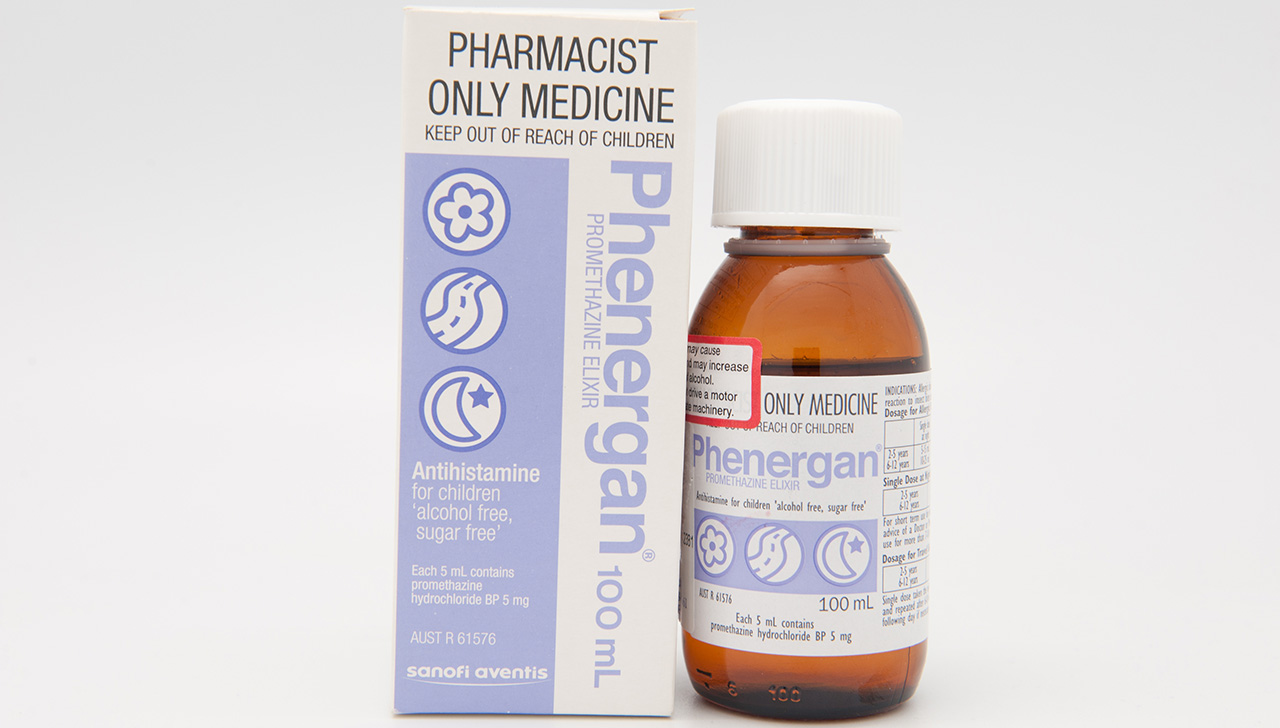
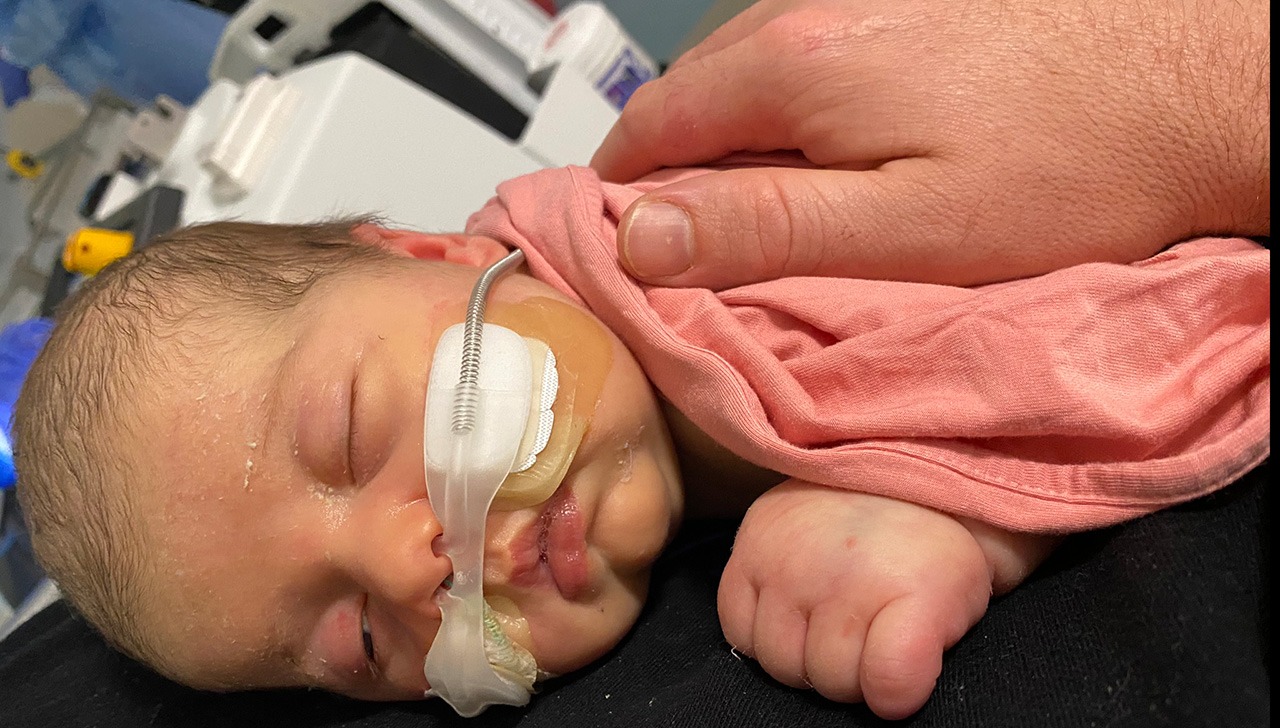



Get your weekly dose of the news and research you need to help advance your practice.
Protected by Google reCAPTCHA v3.

Australian Pharmacist is the official journal for Pharmaceutical Society of Australia Ltd.


